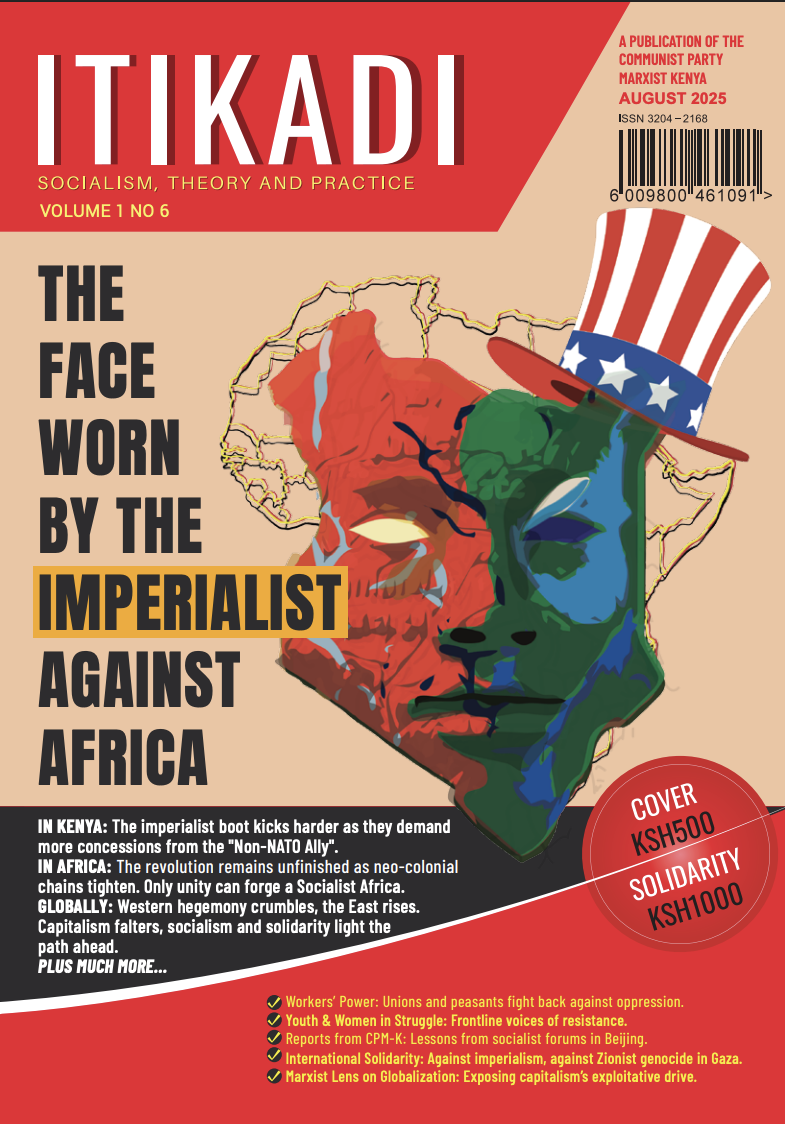By Wahome Waringa
"In the social production of their existence, humans inevitably enter into specific relations, independent of their will. These are the relations of production that align with the stage of development of their material forces of production. The totality of these relations constitutes the economic structures of society, the real foundation upon which arises a legal and political superstructure, corresponding to distinct forms of social consciousness." - Karl Marx.
Legal jurisprudence is the study, knowledge, or science of laws, particularly law as a social theory. Throughout this essay, I contend that law is a social fact investigated through the dialectical method, perceiving it as in constant motion, inter-determined, and ever-changing, with its development as a revelation of inherent contradictions.
All products of nature, including humanity, exist in a perpetual struggle for self-preservation. Man's first law is the law of self-preservation. The development of society has necessitated the evolution of laws based on the prevailing social conditions. As humanity transitioned from a state of nature to a social state, spurred by population growth, it naturally evolved into an organized society. In a primitive society, as proposed by Jean-Jacques Rousseau, human appetites were limited to self-preservation - food, clothing, shelter, and sexual satisfaction. This simplicity allowed conflicts to be settled without persistent class divisions or complex societal structures. External conflicts were resolved through wars, without one tribe subjugating the other.
As society developed, the domestication of animals and the emergence of more complex trading systems led to the transition from tribal to individual trading. Consequently, the rights and obligations of individuals and tribes shifted towards the concept of private property ownership. Here arises a critical question: did humanity relinquish its natural individual rights for the sake of social rights? With the development of society, the need for a constitution to regulate human relations became apparent. According to Rousseau, through a social contract, individuals collectively and severally gained the means to elevate their moral stature and coexist in harmony. At this stage, the constitution represented the general will of the people.
Engels observed that society transformed into an organization for the oppression and exploitation of neighbouring nations, with its organs shifting from instruments of the people's will to independent entities that dominated and oppressed the people. Class divisions emerged, leading to the need for a state as an instrument of 'order' to maintain 'peace' and 'justice.' Marx argued that the state was an organ of class rule, legalising and perpetuating oppression by moderating class conflicts. This situation necessitated the development of laws governing property and classes.
The constitution, as the supreme law, applies to all members of society, including the state, which is itself a creation of the law. The origin of law has been a subject of philosophical debate. Rousseau contended that law, the constitution, is a creation of the people, including those within the state, serving as a declaration of the collective will of the people. Thomas Aquinas emphasized that "an unjust law seems to be no law at all."
In a class society, the question arises: can laws be considered unjust, and if so, to whom are they unjust, and if just, to whom are they just? The answer lies in the analysis of law in theory and practice, examining the interconnectedness of law with the reality of a class-based society. In such a society, the role of law is to exert force and promote the domination of one class by another. The state, originally formed due to class antagonisms, becomes the instrument of the economically dominant class. Laws in different societies cannot be universally applied, as they reflect the specific relations of production in each. Laws have evolved with society's progress and must adapt to changing circumstances. In a capitalist society, the constitution claims to guarantee equal opportunities but often favours the minority, with rights and freedoms influenced by one's economic abilities.
In conclusion, an egalitarian society is based on equality, where the interests of the state and individuals align. Such a state does not rely on external powers or forces to control its citizens, and no ruler from outside interferes in its internal affairs. It is a society where no one is above the law.
References:
1. Jean-Jacques Rousseau: Social Contract and Discourses.
2. J.V. Stalin: Dialectical and Historical Materialism.
3. Lenin: State and Revolution.
4. Mwandawiro Mghanga: Uhuru na Haki za Binadamu.
5. Friedrich Engels: Origin of the Family, Private Property, and the State.







